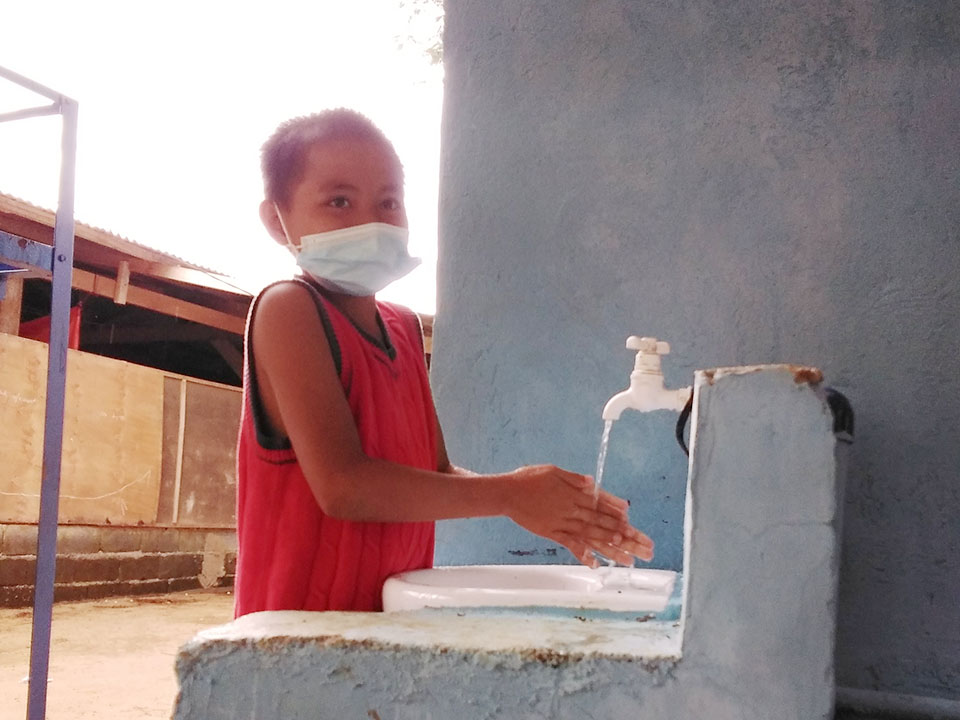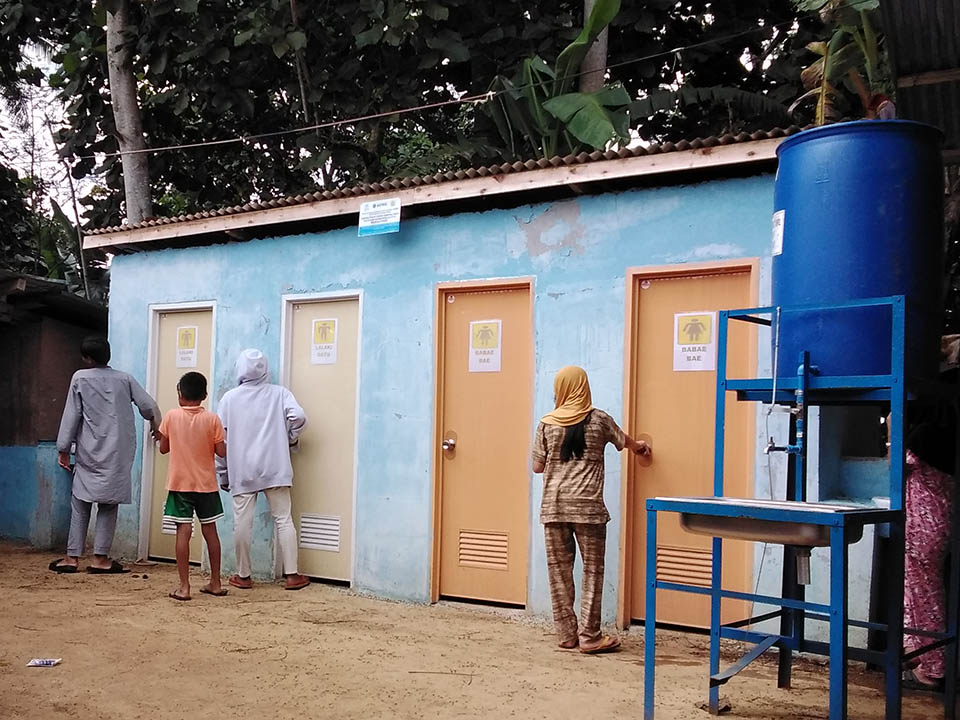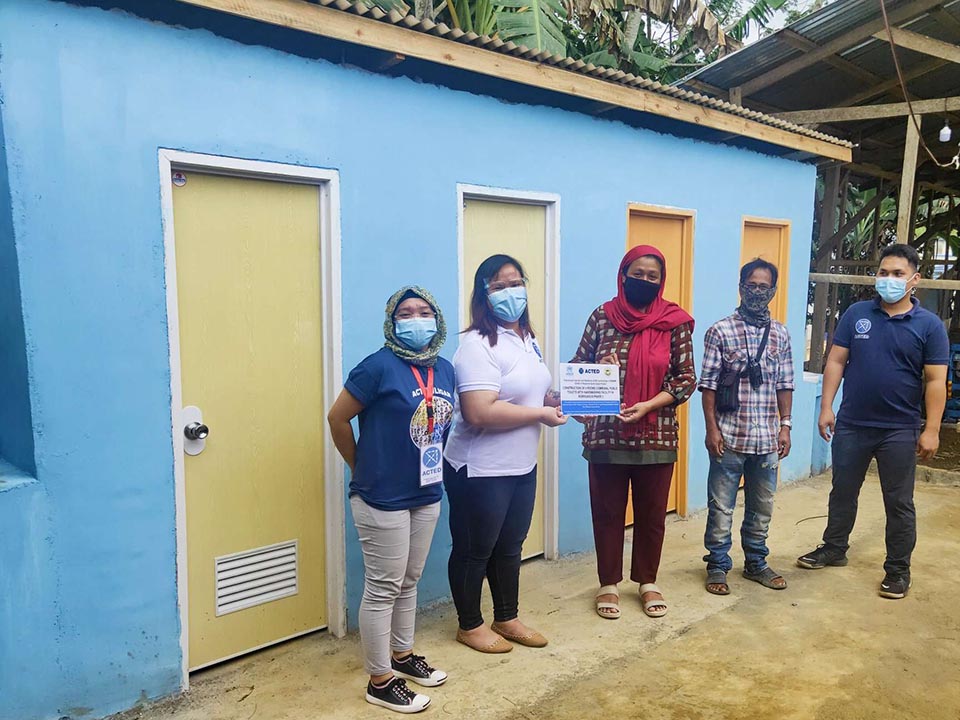Sanitation and hygiene support boosts IDP community in Marawi City
For Najerah Abdulhamid and her family, who have been displaced for almost four years, the handwashing facilities and public communal toilets that you helped install in Rorogagus Transitory Site in Marawi is more than a gift of protection and access to clean water – it gives them peace of mind amid the ongoing threat of COVID-19.
Living together with her mother, cousin, and nephew in a transitory shelter in Marawi City, Najerah finds it difficult to find access to a clean and functioning toilet. “Ever since we transferred in the transitory site in 2019, there was no communal toilet. Although we have our own toilets at home, most of the time, there is little to no water supply.” Working as an IDP volunteer in the community, she sees this as a concern which greatly affects the living conditions of families in the transitory site, particularly regarding their health and hygiene.
Access to safe, reliable, and sanitary hygiene facilities leads to a heathy and decent life. Toileting is a basic activity and a part of everyone’s daily living. It is a routine physical activity for all of us who have free access in our homes, but this is not the same for forcibly displaced families in Mindanao whose access to water, sanitation, and hygiene facilities may be hampered by their situation. As they face an emergency on top of another emergency due to the pandemic, their needs for hygiene and security are even greater.
Najerah’s family fled their home due to the Marawi conflict in 2017. The government began relocating displaced families, including Najerah’s, to transitory sites in December 2019. Today, Najerah’s family is just one of many currently situated in Rorogagus 2 transitory site. Despite better living conditions than in evacuation centers, access to hygiene and sanitation remains a persisting concern and protection issue for these families.
Each day, Najerah visits the mosque to pray together with other families in the transitory site. Beyond a personal need, access to water is also significant for Najerah’s community. “For us Muslims, it is important to pray and we visit the mosque to pray. Before we enter, we need to clean our hands and feet, but visitors are reluctant to ask permission from the families to use their comfort rooms.” With an ongoing pandemic, Najerah highlights the importance of maintaining hygiene and sanitation even more.
“In this pandemic, all of us should always keep ourselves clean not only before going to the mosque, but every time we go out. Since visitors also go to the mosque, we really encourage them to observe proper handwashing,” she says.
Now the Rorogagus 2 transitory site is fully equipped with a public toilet and handwashing area accessible to all families in the community, thanks to a quick impact project implemented in 2020 by UNHCR Philippines with your help, the support of the Australian Government and in partnership with other humanitarian partners and the local government unit of Marawi City.
A staunch advocate of sustainability, development, and peace in Mindanao for over 20 years, the Australian Government partnered with UNHCR Philippines to support a protection and solutions programme for internally displaced persons in Mindanao from 2020 to 2022.
Najerah’s community is among those being supported by this multi-year partnership. Today, Najerah is grateful that there stands a clean and reliable toilet and handwashing area to boost the hygienic conditions among the community. “It makes our community cleaner and more beautiful. Thanks to the new toilet and sink, we can comfortably clean ourselves even if we are outside our homes,” she says.
Najerah is more confident now that everyone in the transitory site can enjoy access to a safe, reliable and accessible toilet space and handwashing facility. “This is a big help for us. Now, we will not worry about where we can get water and use a toilet.”
Share on Facebook Share on Twitter



